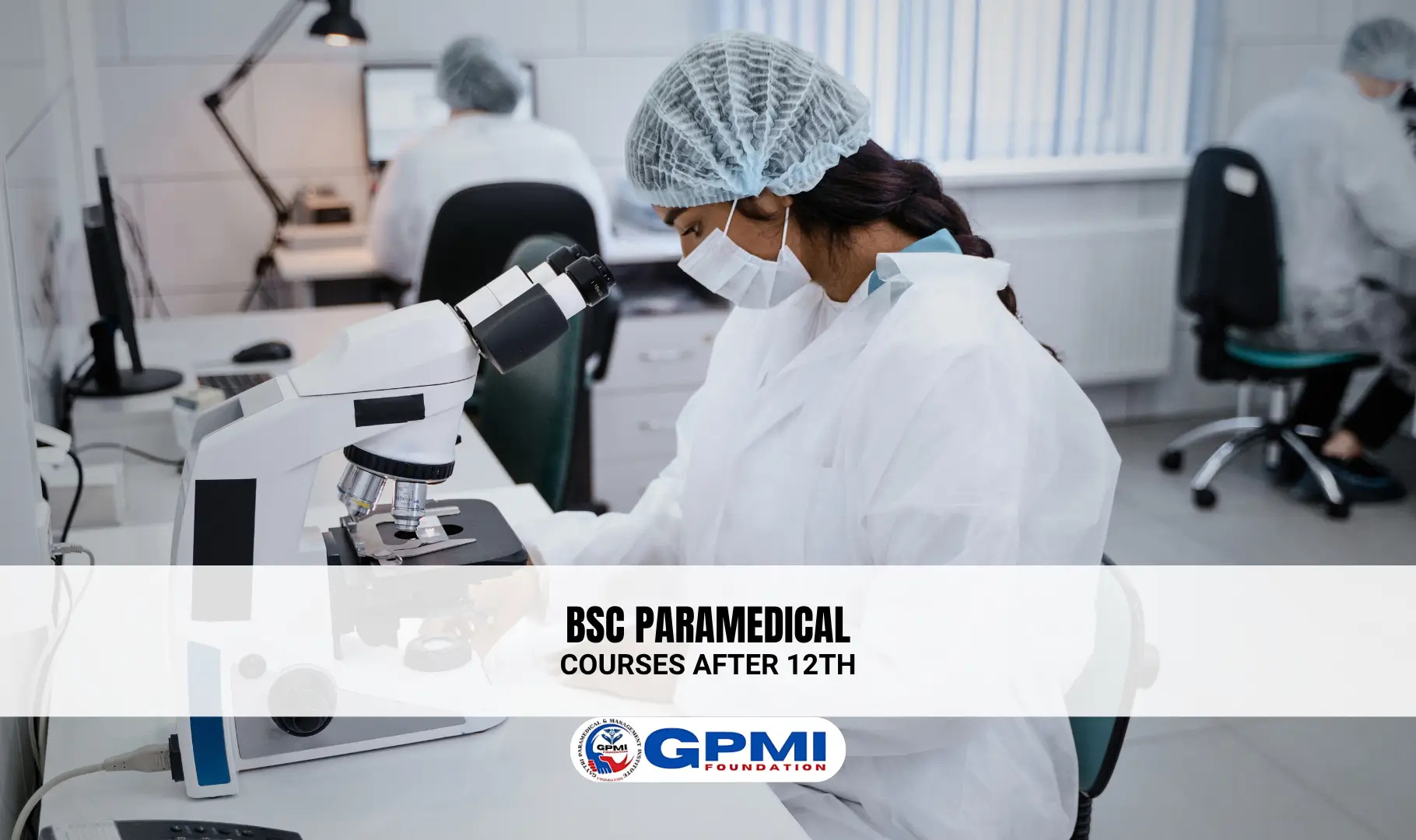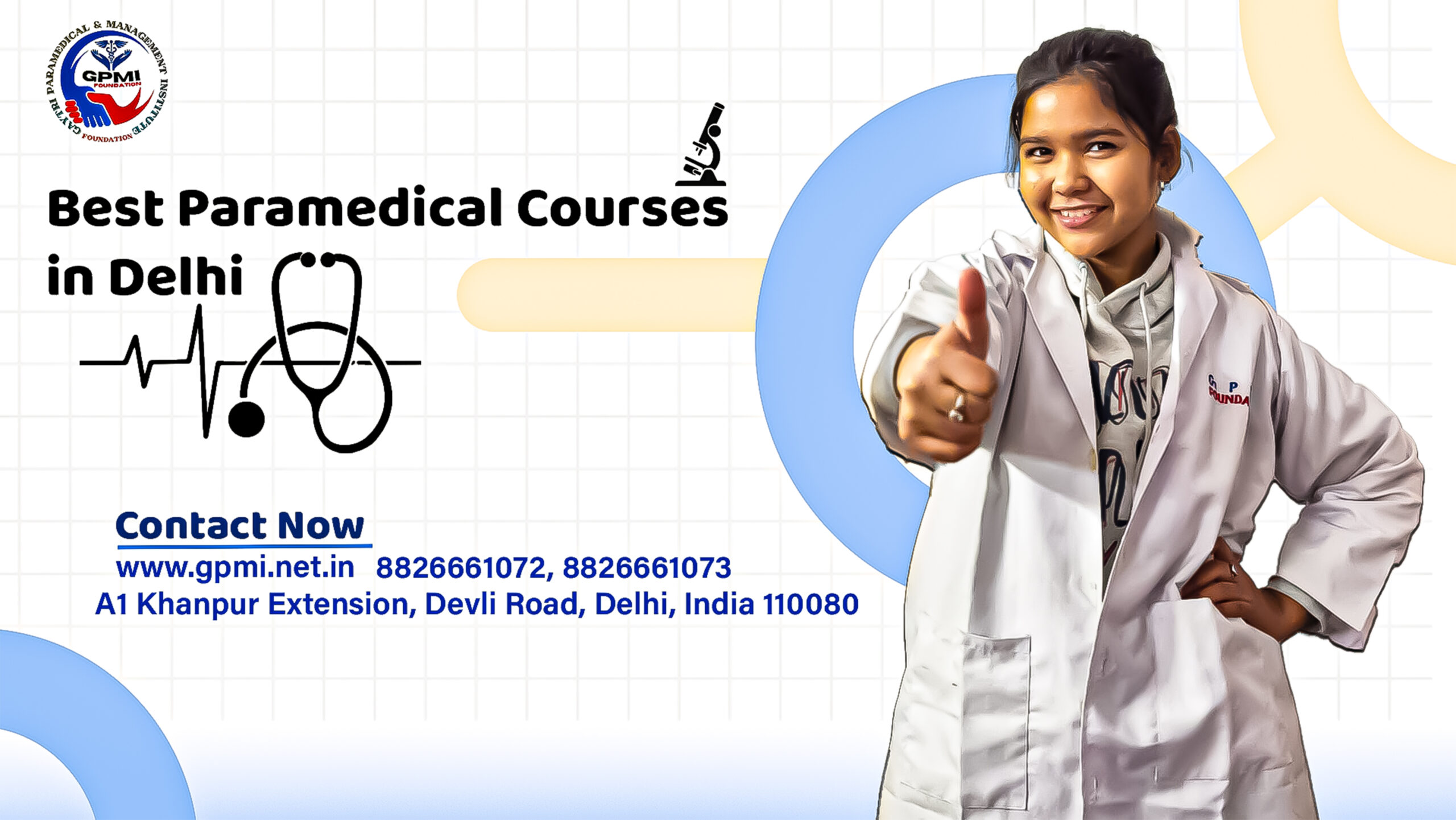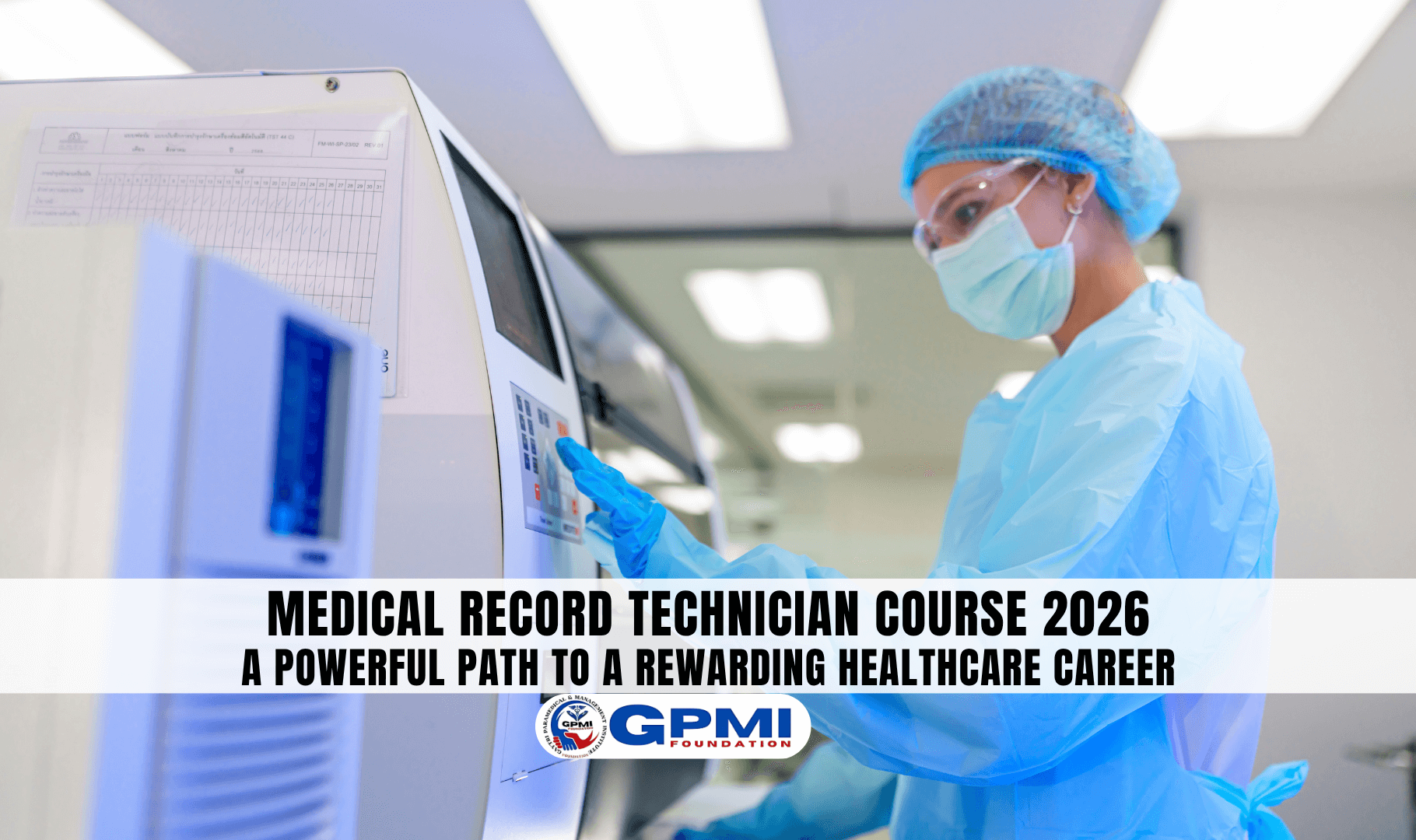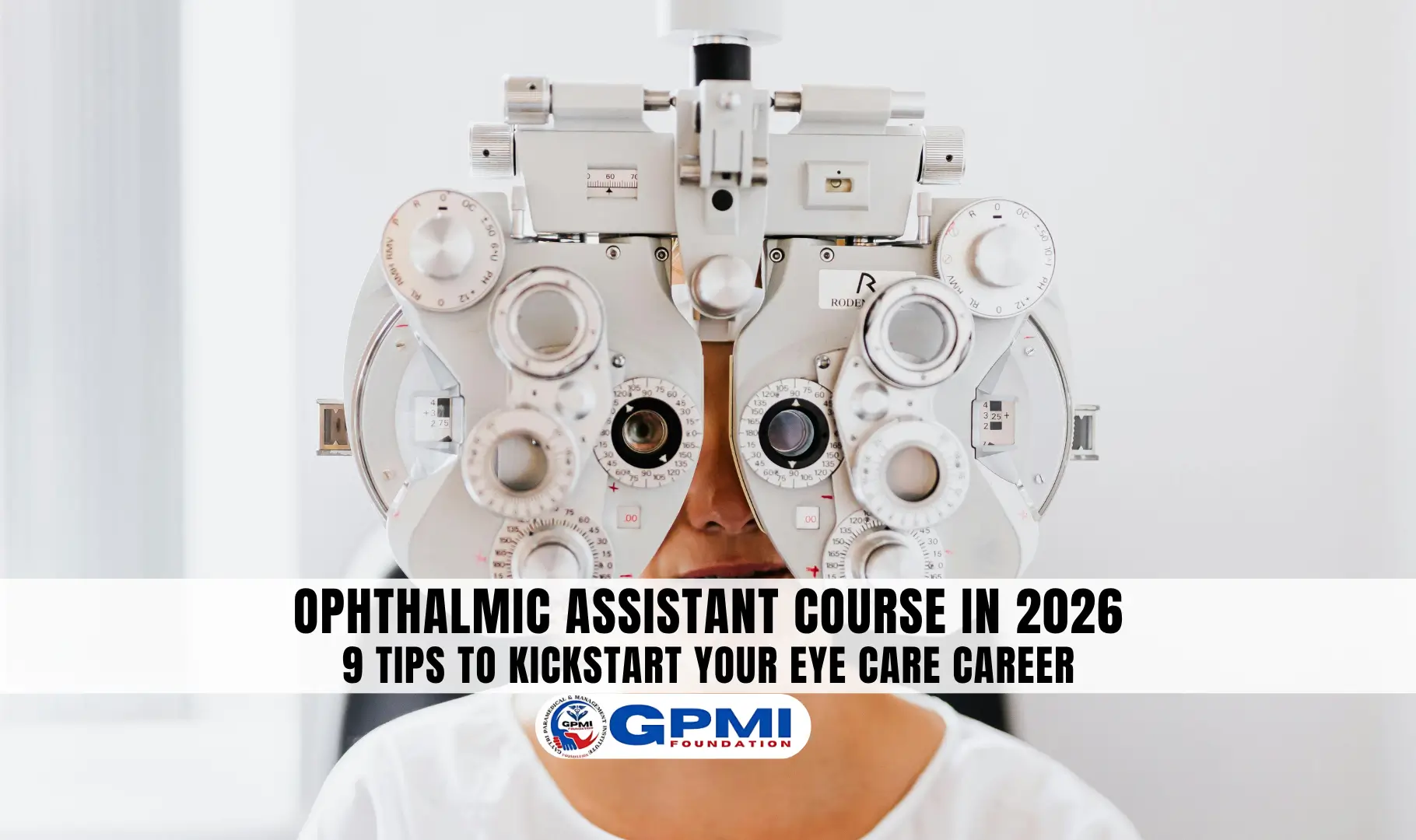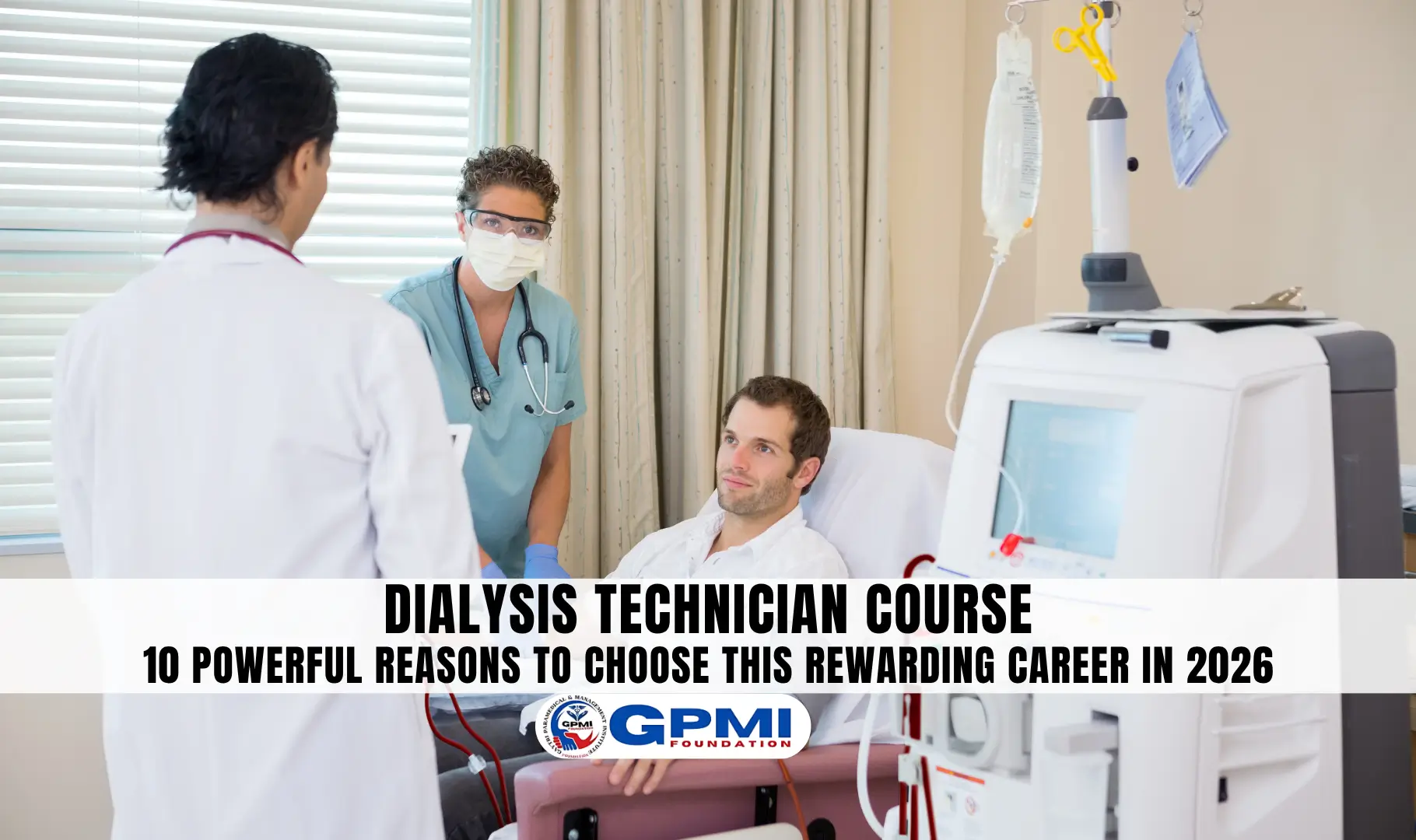Are you a science student wondering what to do after 12th? Do you want a career that is exciting, meaningful, and full of growth? If yes, then BSc paramedical courses might be the right path for you. These courses are designed for students who want to work in the medical field but don’t want to become a doctor or nurse.
Paramedical professionals play an important role in hospitals, labs, and clinics. They help in diagnosing diseases, operating machines, assisting doctors, and caring for patients.
In this article, we will talk about the best BSc paramedical courses that you can choose after completing your 12th with science. Whether you are interested in working in operation theatres, medical labs, X-ray rooms, dialysis units, or eye care clinics, there’s a course for you. The best part? These careers are in high demand and offer good salary packages, job security, and even chances to work abroad.
So, if you are looking for a respected career in healthcare without going through the long journey of MBBS, keep reading. This guide will help you pick the right BSc paramedical course based on your interest, skills, and future goals. Let’s begin your journey toward a strong and successful healthcare career!
Table of Contents
What Are BSc Paramedical Courses?
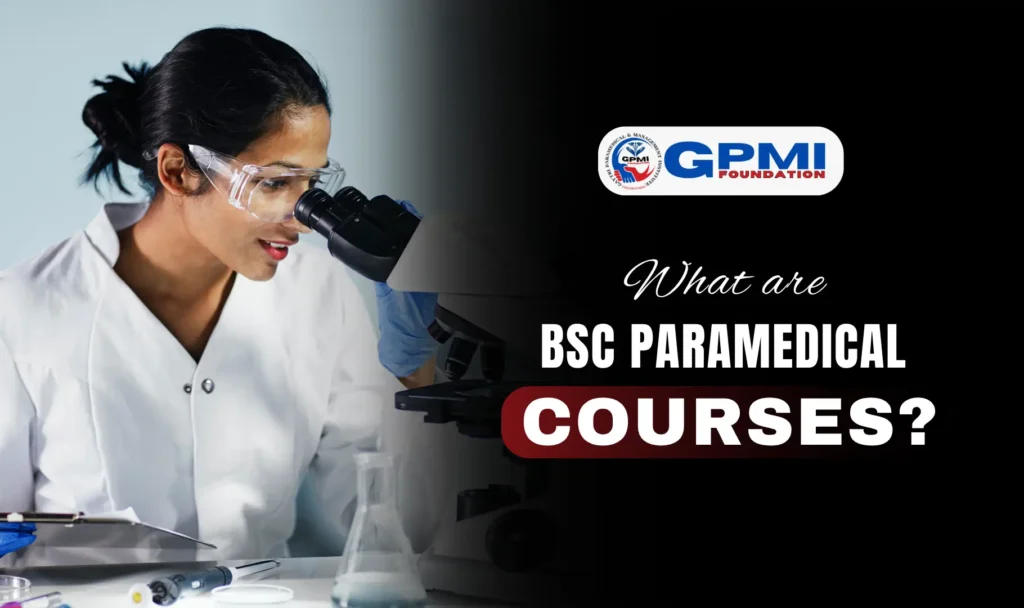
If you are a science student and want to work in the medical field without becoming a doctor, then BSc paramedical courses are a great choice. But first, let’s understand what is BSc paramedical courses. These are 3-year undergraduate degree programs that train students to become skilled healthcare workers.
Paramedical professionals help doctors in diagnosing and treating patients. They work in labs, hospitals, operation theatres, and diagnostic centers. In BSc paramedical courses, students learn how to use medical machines, test samples, take X-rays, manage operation theatre equipment, and more.
Some popular BSc paramedical courses include BSc in Medical Lab Technology (MLT), Radiology, Operation Theatre Technology (OTT), Dialysis Technology, and Optometry.
These courses are job-oriented and offer good career opportunities in both the government and private sectors. After completing the course, you can work as a lab technician, radiographer, OT technician, dialysis assistant, or optometrist. It’s a smart way to enter the medical field with a strong job scope and less study time than an MBBS.
BSc Paramedical Courses Duration & Eligibility
BSc paramedical courses usually have a duration of 3 years, divided into 6 semesters. Some universities may also include an internship or hands-on training in the final semester to help students gain real-world experience in hospitals or labs.
For admission, students must have passed the 12th class with a Science stream (Physics, Chemistry, and Biology) from a recognized board. Minimum percentage 45% to 50% marks in 12th. NEET is not compulsory in most colleges.
BSc Paramedical Courses Fees
The fees for BSc paramedical courses depend on the college type, course specialization, and location.
- Private Colleges: Fee ranges from ₹30,000 to ₹1,50,000 per year
- Government Colleges: Fee is lower, usually around ₹10,000 to ₹50,000 per year
- Additional Costs: Lab charges, uniforms, books, and exam fees may be extra
- Scholarships/Installments: Many colleges offer scholarships, fee waivers, or EMI options for deserving students.
- Overall Cost: Total cost for 3 years usually ranges between ₹90,000 to ₹4,50,000
This makes BSc paramedical courses an affordable and valuable career option in the healthcare field.
BSc Paramedical Courses Salary
After completing a BSc paramedical course, students can expect a starting salary of around ₹15,000 to ₹25,000 per month depending on the job role, location, and type of healthcare facility. With 2-3 years of experience, the salary can grow up to ₹35,000 to ₹50,000 per month or more. Those working in private hospitals, diagnostic labs, or abroad often earn higher.
- Starting salary: ₹15,000 – ₹25,000/month
- Experienced salary: ₹35,000 – ₹50,000+/month
- Job roles: Lab Technician, Radiographer, OT Technician, Dialysis Assistant
- Workplaces: Hospitals, Labs, Clinics, Diagnostic Centers, Abroad Opportunities
BSc paramedical professionals also have the chance to grow further through higher studies or by gaining specialized skills.
BSc Vs B.Voc Paramedical Courses
Both BSc and B.Voc paramedical courses are excellent choices for students who want a career in healthcare, but they differ in structure, focus, and future opportunities.
BSc paramedical courses are traditional 3-year degree programs focused on theory, scientific knowledge, and medical technology. These courses are ideal for students aiming for academic depth and long-term specialization.
B.Voc paramedical courses are more skill-based and practical. They follow the NSQF (National Skills Qualification Framework) and allow flexible exits with a diploma after 1 year, advanced diploma after 2 years, and a degree after 3 years.
Key Differences:
- BSc Paramedical Courses: Academic + practical knowledge but B.Voc Paramedical Courses: Industry-specific skills and hands-on training
- BSc Courses have Fixed 3-year duration but B.Voc Courses have Exit options at different levels
- BSc Courses Suitable for higher studies, research and B.Voc Courses Ideal for quick job readiness and industry placement
Best BSc Paramedical Courses List
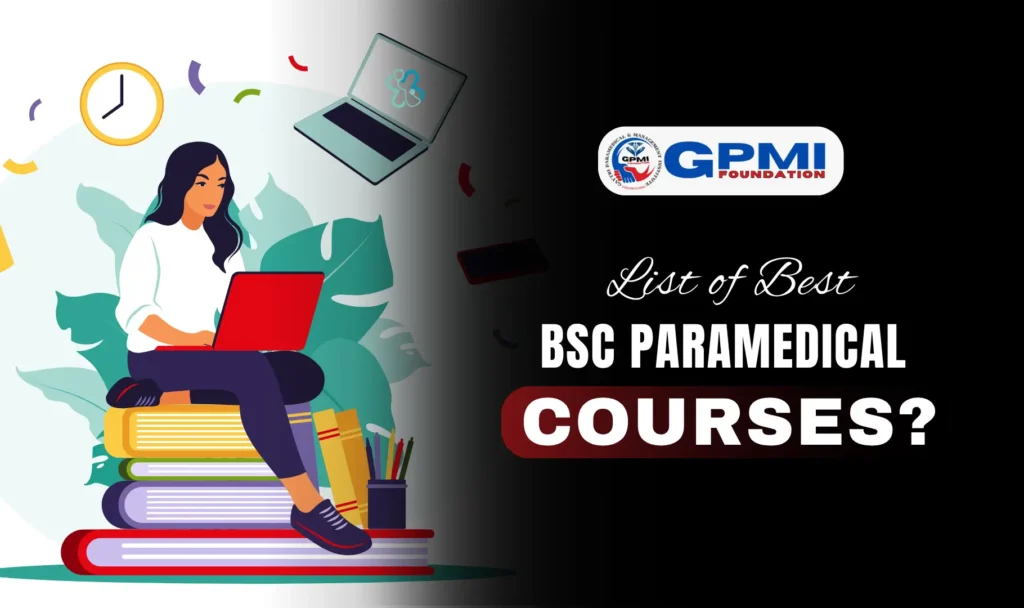
BSc paramedical courses are designed to give you hands-on training and knowledge to work in hospitals, labs, diagnostic centers, and other healthcare settings. They are job-oriented, and their demand is growing fast due to the rising need for skilled medical support staff.
Below is a list of some of the best bsc paramedical courses with high salary you can choose after completing 12th with (PCB).
1. BSc in Medical Laboratory Technology (BSc MLT)
BSc in Medical Laboratory Technology (BSc MLT) is one of the most popular paramedical courses. It is a 3-year course that trains students to perform lab tests on blood, urine, and other body fluids to help diagnose diseases.
- Job roles: Lab Technician, Pathology Technician, Lab Manager
- Workplace: hospitals, diagnostic labs, research centers, and blood banks
- Salary: ₹15,000 – ₹35,000/month (can increase with experience)
The career scope is wide, with growing demand in both government and private sectors. With experience, MLT professionals can also work abroad or start their own diagnostic labs and scope for higher studies like M.Sc. MLT.
2. BSc in Radiology and Imaging Technology
BSc in Radiology and Imaging Technology is a 3-year course that trains students to use machines like X-ray, MRI, CT scan, and ultrasound to diagnose internal health problems.
- Job Roles: Radiographer, MRI Technician, CT Scan Assistant
- Workplace: Hospitals, diagnostic centers, imaging labs
- Salary: ₹18,000 – ₹40,000/month (higher with experience)
- Career Scope: Growing demand in India and abroad, scope for specialization, opportunities in research centers and private diagnostics.
3. BSc in Operation Theatre Technology (BSc OTT)
BSc OTT trains students to assist surgeons and nurses during surgeries. They learn about sterilization, surgical instruments, anesthesia equipment, and patient care before, during, and after operations.
- Job Roles: Operation Theatre Technician, Surgical Assistant, Anesthesia Technician
- Workplace: Hospitals, surgical units, trauma centers, emergency care units
- Salary: ₹15,000 – ₹35,000/month (can increase with experience)
High demand in both private and government hospitals, growth opportunities in critical care, scope to work abroad, and further studies like M.Sc. OTT or healthcare management
4. BSc in Dialysis Technology
BSc in Dialysis Technology trains students to operate dialysis machines and care for patients with kidney failure. Students learn how to perform hemodialysis, monitor patient vitals, and maintain equipment.
- Job Roles: Dialysis Technician, Hemodialysis Assistant, Renal Dialysis Officer
- Workplace: Hospitals, dialysis centers, nephrology clinics
- Salary: ₹15,000 – ₹30,000/month (can grow with experience)
Now it is in high demand due to rising kidney-related issues, opportunities in both public and private healthcare sectors, chance to work in multispecialty hospitals and abroad, and scope for further studies in nephrology or healthcare management.
5. BSc in Optometry
BSc in Optometry is a 3-year degree course that trains students to examine, diagnose, and treat vision problems. Students learn how to conduct eye tests, prescribe lenses, and detect eye diseases.
- Job Roles: Optometrist, Vision Consultant, Optical Sales Executive
- Workplace: Eye hospitals, optical stores, clinics, multinational eye care companies
- Salary: ₹18,000 – ₹40,000/month (can increase with experience)
This is in high demand in urban and rural areas, opportunities to open your own clinic, work with top eye care brands, or pursue higher studies like M.Optom or PhD in Vision Science.
6. BSc in Anesthesia Technology
BSc in Anesthesia Technology is a 3-year degree course that prepares students to assist anesthesiologists during surgeries. Students learn to handle anesthesia equipment, monitor patients’ vitals, and ensure patient safety before, during, and after surgical procedures.
- Job Roles: Anesthesia Technician, Surgical Assistant, ICU Technician
- Workplace: Hospitals, operation theatres, ICUs, trauma centers
- Salary: ₹18,000 – ₹35,000/month (can rise with experience)
High demand in surgical and emergency care units, opportunities in both government and private hospitals, scope for higher studies in anesthesia care, critical care, or hospital administration.
7. BSc in Medical Record Technology
BSc in Medical Record Technology is a 3-year degree course that trains students to manage patient records, health data, and hospital information systems. It focuses on organizing, coding, and securing medical documents using digital tools.
- Job Roles: Medical Record Technician, Health Information Manager, Data Entry Officer
- Workplace: Hospitals, clinics, healthcare IT firms, insurance companies
- Salary: ₹15,000 – ₹30,000/month (increases with experience and digital skills)
Growing demand in digital healthcare, opportunities in government and private sectors, scope for advancement in medical coding, data analysis, or healthcare management with further studies.
8. BSc in Emergency Medical Technology
BSc in Emergency Medical Technology is a 3-year course that trains students to respond quickly and effectively during medical emergencies. Students learn to provide pre-hospital care, CPR, trauma support, and patient transportation.
- Job Roles: Emergency Medical Technician (EMT), Ambulance Assistant, Trauma Care Technician
- Workplace: Ambulance services, emergency departments, trauma centers, disaster response teams
- Salary: ₹18,000 – ₹35,000/month (can increase with field experience)
This is in high demand in hospitals, 108 ambulance services, and disaster response units. Opportunities to work with government health services, NGOs, or pursue advanced EMT and paramedic certifications.
9. BSc in Cardiac Care Technology
BSc in Cardiac Care Technology trains students to assist in diagnosing and treating heart-related conditions. Students learn to operate ECG, ECHO, and other cardiac machines, monitor patients, and support cardiologists.
- Job Roles: Cardiac Technician, ECG/ECHO Technician, Cath Lab Assistant
- Workplace: Cardiology hospitals, heart care centers, ICUs, diagnostic labs
- Salary: ₹20,000 – ₹40,000/month (higher with experience and skills)
Rising heart disease cases increase demand, strong career prospects in India and abroad, scope for advanced studies in cardiac technology or clinical cardiology.
10. BSc in Respiratory Therapy
BSc in Respiratory Therapy is a 3-year course that trains students to treat patients with breathing and lung-related problems. Students learn to manage ventilators, provide oxygen therapy, and assist during emergencies like asthma attacks or respiratory failure.
- Job Roles: Respiratory Therapist, ICU Respiratory Technician, Pulmonary Care Assistant
- Workplace: ICUs, emergency departments, pulmonary care units, rehabilitation centers
- Salary: ₹18,000 – ₹35,000/month (can grow with experience)
This is in high demand in critical care and emergency medicine, increasing need due to respiratory illnesses, opportunities in both government and private hospitals, and scope for further specialization.
BSc paramedical courses open the door to exciting and respected careers in the healthcare industry. Choose the course based on your interest, strength, and career goals. Whether you prefer working with machines, patients, or data, there’s a BSc paramedical course for you!
AIIMS Bsc Paramedical Courses
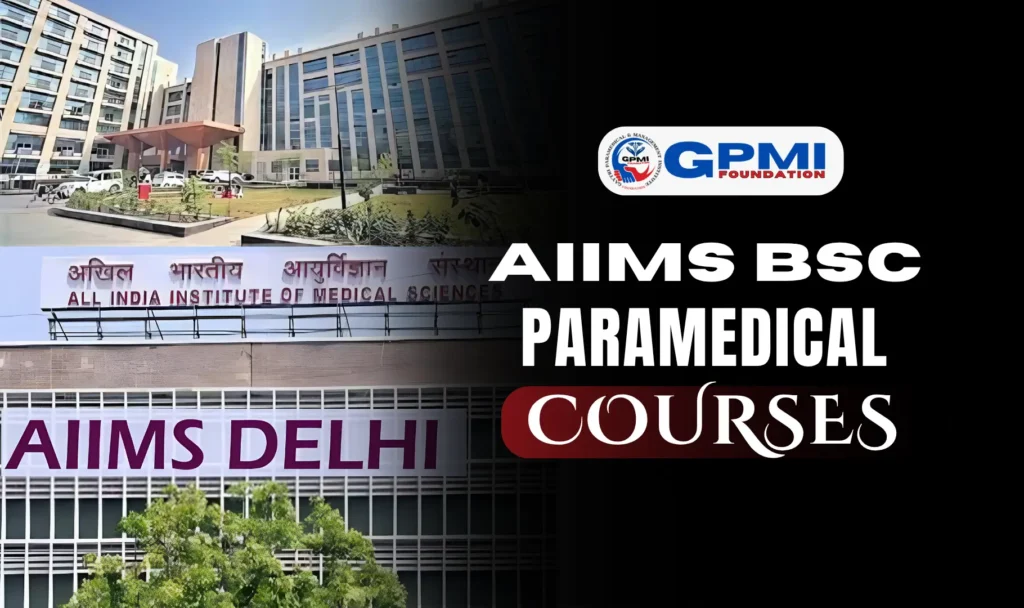
AIIMS (All India Institute of Medical Sciences) is one of the best institutions in India known for its world-class education and training. AIIMS offers a wide range of BSc paramedical courses for students who have completed their 12th with science. These courses are designed to prepare students for specialized roles in the healthcare sector, focusing on practical skills and hands-on clinical experience.
BSc paramedical courses in AIIMS are 3 to 4-year degree programs offered across various AIIMS campuses such as Delhi, Bhopal, Rishikesh, Jodhpur, Patna, Raipur, and others. These programs are focused on training students in specific healthcare support areas such as medical labs, radiology, anesthesia, and operation theatre technology.
List of BSc Paramedical Courses AIIMS Offers:
The courses include (across AIIMS such as New Delhi, Bhopal, Bhubaneswar, Jodhpur, Rishikesh, Bibinagar, Kalyani, Nagpur, etc.):
- B.Sc. in Medical Laboratory Technology (MLT)
- B.Sc. in Medical Radiology & Imaging Technology (MRI / MRIT)
- B.Sc. in Operation Theatre (OT) Technology
- B.Sc. in Anaesthesia Technology
- B.Sc. in Optometry (Bachelor of Optometry)
- B.Sc. in Radiotherapy Technology
- B.Sc. in Emergency Medicine Technician / Emergency Medicine Technology
- B.Sc. in Dialysis Therapy Technology (MDTT)
- B.Sc. in Cardiac Technology / Cardiac Laboratory Technology
- B.Sc. in Urology Technology
- B.Sc. in Neuro‑Monitoring Technology (Neuro‑electrophysiology)
- B.Sc. in Respiratory Therapy
- B.Sc. in Sleep Laboratory / Sleep Technology
- B.Sc. in Orthopaedics Technology
- B.Sc. in Perfusion Technology
Key Highlights:
- Eligibility: 10+2 with Physics, Chemistry, Biology, and English
- Admission: Through the AIIMS Paramedical Entrance Exam
- Course Duration: 3–4 years (depending on the course)
- Job Roles: Lab Technician, Radiographer, OT Technician, Anesthesia Assistant, and more
- Workplace: AIIMS hospitals, government and private hospitals, labs, research centers
Graduates from BSc paramedical courses AIIMS have a strong career edge due to the institute’s reputation. They are in high demand in India and abroad, and many also choose to pursue higher studies or research.
AIIMS certification ensures quality education, strong practical skills, and excellent job placement opportunities. If you are serious about a career in healthcare, AIIMS is a trusted and top-ranked choice for BSc paramedical courses.
Career Scope After Bsc Paramedical Courses
With the rising demand for skilled healthcare professionals, the career scope after BSc paramedical courses is growing rapidly in India and abroad.
After completing a BSc paramedical degree, students can find jobs in both government and private healthcare institutions. They may work in hospitals, clinics, diagnostic labs, emergency care units, and rehabilitation centers. Those with strong practical skills and experience can also work internationally.
Popular Job Roles:
- Medical Lab Technician
- Radiology Technician
- Operation Theatre Technician
- Dialysis Technician
- Anesthesia Technician
- Optometrist
- Cardiac Care Technician
- Emergency Medical Technician (EMT)
- Respiratory Therapist
- Health Information Manager
Career Growth Options:
- Work as a senior technician or supervisor after gaining experience
- Pursue higher studies like M.Sc. in respective fields or Hospital Administration
- Work as a trainer or instructor in medical colleges or institutes
- Prepare for government exams for healthcare-related jobs
- Start your own diagnostic lab, optical clinic, or healthcare service
In short, BSc paramedical graduates have access to stable and respected careers. With further education or specialization, they can also reach leadership roles or move into healthcare management. The healthcare industry is always evolving, and trained paramedical professionals are essential to its success.
Conclusion
Choosing the right BSc paramedical course after 12th can set the foundation for a rewarding and respected career in healthcare. Whether it’s Medical Lab Technology, Radiology, Operation Theatre, Dialysis, or Optometry, each course offers strong job prospects, skill development, and opportunities for growth.
These programs are job-oriented, affordable, and in high demand across hospitals, labs, and healthcare centers in India and abroad.
Science students who want to enter the medical field without pursuing MBBS can confidently choose from these top BSc paramedical courses and begin a meaningful journey in the healthcare industry.


